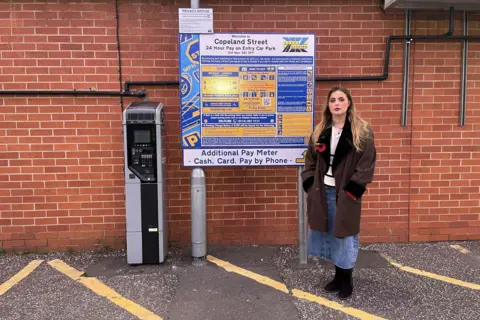The UK government has launched a consultation intended to implement a new code of practice aimed at addressing concerns regarding unfair penalties imposed by private car park operators. This initiative emerges in response to notable instances of excessive parking charges that have alarmed drivers across the country. A prominent case highlighting this issue involves Rosey Hudson, who found herself facing an exorbitant fee of £1,906 after exceeding the five-minute time limit to process her payment in a car park located on Copeland Street in Derby.
The proposed Private Parking Code of Practice is designed to establish a more equitable and transparent framework for the management of private parking facilities. According to government officials, the reforms aim to alleviate the burden on drivers who often encounter confusing regulations and discouraging practices imposed by car parking providers. The British Parking Association, one of the leading trade associations overseeing this sector, has pledged to collaborate closely with the government throughout the consultation period.
Local growth minister, Alex Norris, who also represents Nottingham North and Kimberley, emphasized the everyday significance of parking in various aspects of life, from running errands to visiting loved ones in health facilities. He pointed out that many individuals are saddled with unfair penalties and that the new code seeks to tackle misleading practices while enhancing transparency and oversight within the industry. The last government’s effort to produce a code of practice was halted due to legal challenges from some parking firms; hence, the private parking sector has been left to self-regulate through organizations like the British Parking Association (BPA) and the International Parking Community (IPC).
The lack of regulation has resulted in an increasing number of parking charge notices (PCNs), which are issued after operators acquire drivers’ personal details via the Driver and Vehicle Licensing Agency (DVLA). These charges can escalate dramatically, as seen in cases where individuals have been fined for minor infractions, such as delays in payments or errors in entering their vehicle registration numbers. The government’s new measures are expected to mitigate these charges arising from problems like payment machine functionality issues, typographical errors, or poor mobile connectivity.
Nevertheless, not all stakeholders believe that the government’s proposals adequately address the existing concerns. Jack Cousens, the head of roads policy at the AA, expressed skepticism, warning that the current consultation process might not align with driver’s interests and that the proposals favor private parking operators. One of the particular points of contention is the suggested maximum charge of £100, which exceeds the previously discussed limit of £50. Cousens urged drivers to take part in the consultation process to voice their experiences with private parking companies.
Worryingly, data from the DVLA indicates a significant rise in the issuance of PCNs by private operators, which has surged by 673% since 2012. In the last financial year alone, they obtained 12.8 million keeper details. This surge not only reflects an increase in available parking spaces but also points to systemic issues—mainly a lack of independent oversight that renders motorists susceptible to unjust charges. The Ministry of Housing, Communities and Local Government highlighted the need for a new compliance framework to ensure accountability.
Under the forthcoming proposals, operators found in breach of the code may disrupt their access to drivers’ details from the DVLA. This initiative contemplates establishing a robust framework that enhances the standards within the private parking sector while ensuring that motorists are protected from exorbitant penalties, particularly as technology and payment systems evolve.
The consultation process is set to last for eight weeks, concluding on 5 September, and individuals can submit their feedback through online platforms. The BPA asserted that while it is eager to work in partnership with the government, any new code must allow for effective enforcement measures to prevent parking misuse that can deter accessibility for those who truly need it, including disabled individuals, parents with young families, and local residents. Balancing enforcement and fairness will be critical to the successful implementation of any new regulations in the parking realm.










